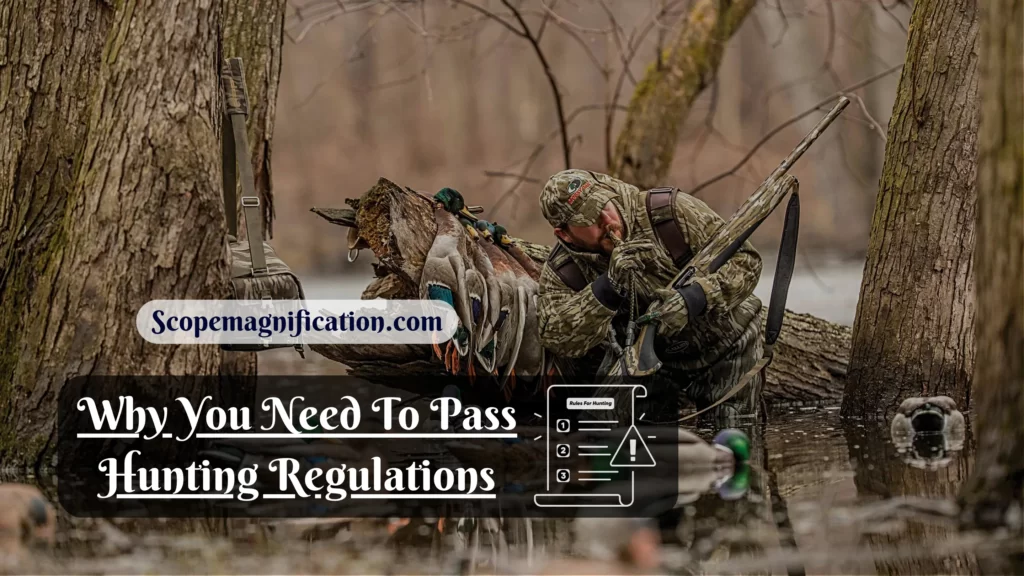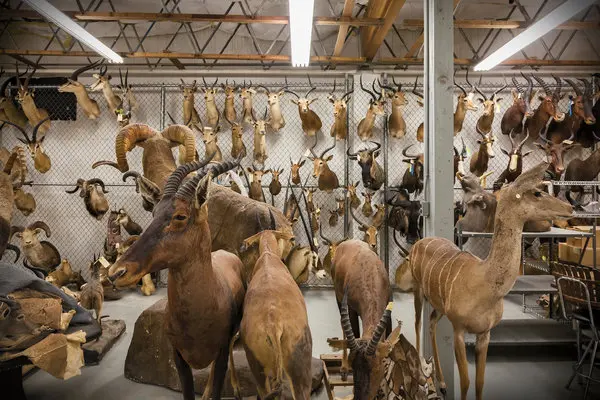Hunting is a sport gaining popularity globally with its numerous fun factors and challenging lessons. It helps conserve endangered species and repair the ecosystem by creating a pollution-free environment. However, hunting can risk the environment if the management body fails to exercise its role. What group sets hunting regulations in most states? If you want to explore the answer, find it below.
Agencies and hunters should meet frequently and create a consensus on hunting regulations. However, every State in the US has an independent management body that makes rules and regulations and tells what is allowed and what is not allowed in hunting. If anything goes wrong, and you find a violation, you need to report it, but to whom? I’ll also give you an answer to this question. Let’s see the groups that set hunting rules in most states.
Why You Need To Pass Hunting Regulations?
Variety of reasons to push forward this idea of making regulations to supervise hunting, and one of the biggest reasons is to avoid the endangerment of a particular species because of overhunting. Moreover, it keeps the environment healthy and pollution-free.

Creating a balanced equation between species helps the ecosystem stay strong. Regulations are also necessary to keep the land dispute free between hunters, hikers, and campers. So, following rules is good, allowing everyone to experience a good atmosphere.
How We Can Pass Hunting Regulations?
Hunting regulations have nothing out of the box from other laws like traffic and labor laws. It is all about keeping ethical and legal practices in, and those who violate them will be punished. Federal wildlife agencies or states put the matter in. For passing a law, the agency may go for public hearings, discussions with stakeholders, expert suggestions, etc.
Hunting laws preserve wildlife. Hunter ethics preserve wildlife, and you get a suitable ecosystem. If you fail to follow the hunting regulations, prepare for huge penalties, fines, imprisonment, and loss of hunting benefits.
First Group That Proposed Hunting Laws
The ancient civilizations were the ones to make regulations to manage the population of wildlife. These laws were not that developed but very basic, with the prohibition of hunting a specific species, a ban on hunting for a particular period, etc.
Hunting laws came into being in the 1800s for the first time in the USA. However, the laws continue to evolve based on new learnings and findings. So, this is how we got the hunting regulations from the 1800s to today.
Hunting Regulations That are Set by USFWS
It has fundamental hunting regulations, beginning with getting a hunting license if you want to hunt in the USA. Moreover, hunters have to hunt within the allowed federal laws bagging. The USFWS allows its hunters to hunt, trap, fish, and more. No doubt, hunting laws preserve wildlife. Hunter’s ethics preserves the atmosphere ultimately.
Wildlife Responsibilities of USFWS
The USFWS manages around 700 offices with more than 9000 employees to take good care of more than 150 million acres of natural habitat. It is the most significant authority to lead from the front regarding wildlife. It has headquarters in Arlington, Virginia. It has a high role to play in keeping wildlife safe and healthy. Why were hunting laws passed? If you know how USFWS works, you can crack the answer out of it.
Illegal Hunting in the USA
China comes first, and the USA is second regarding illegal wildlife imports. So, it is not something to be happy about, and we need to curb this unethical practice by taking serious measures. You can contribute to the cause by reporting if anything needs to be corrected. Black bear poaching, Deer poaching, Bighorn sheep antlers, illegal trading, etc., you need to keep an eye on these unfortunate activities.

How to Stop Violation of Hunting Laws?
You, being an individual hunter, should contribute to the USFWS. First, you need to learn the regulations and be aware of what is permissible and what is not. Moreover, it would help if you focused on law provisions related to your area. You can report poaching and illegal trading to the local USFWS office.
You can also approach the wildlife department if you do not find one. It is the wildlife department but based on the discussion with stakeholders, experts, and incidents. More importantly, if you find anything suspected, you should only try to handle it indirectly but report it to the relevant authority.
You can find all the necessary information, such as the license requirements, permits, list of species allowed to hunt and those not allowed to hunt, stamp requirements, seasons, hours, safety measures, and bag limits. So, get a hunting regulations publication right away to learn about all this.
It is not only about giving respect orally but keeping them safe is also a way of giving respect. It would help if you never argued with a nonhunter and should not stop their way by stopping your jeep or any other vehicle you own. Do not enter private premises and respect the privacy of everyone.
Hunters can improve their image by keeping their job within laws and regulations prescribed by the authorities. Moreover, never hunt a private animal, and do not cross the limits of your permit. It is better to avoid illegal trading, poaching, and hunting of endangered species. By contributing to nature and the ecosystem, hunters can serve the world in the best way possible.
You can get regulation information from your nearest wildlife management office or the USFWS center. Moreover, you can approach virtually if you are busy enough to avoid visiting the place yourself. All you need to do is access the official wildlife website, and you can find whatever information you need. I hope you know well why it was necessary to pass laws.
The primary topic of the article is; What Group Sets Hunting Regulations in Most States. The wildlife department passes laws but with the consultation of experts and stakeholders. Moreover, incidents happen, and in the process of making new laws continues, so does the wildlife department. It is essential to know that as an individual hunter, one should play a role and contribute to this noble cause. However, whether you are a hunter or not, you must know hunting laws to avoid misfortune.
Final Thoughts